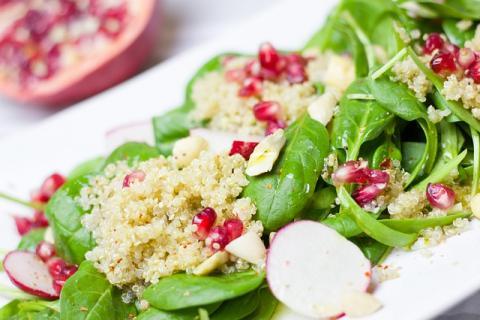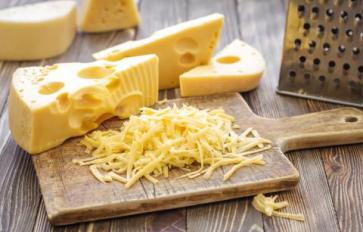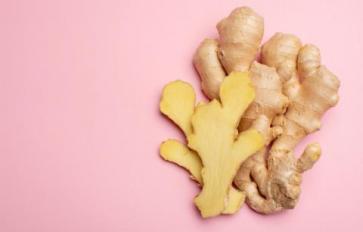
Couscous originated in the Berber tribes of North Africa and became a staple throughout the region. The Arabic word “kishusu” was a derivative of the Berber language. It came into existence between the11th century fall of the Zirid Kingdom and the rise of the Almohads in the 13th century. The first published mention of the food was discovered in an Arab cookbook in the 14th century. It was a popular food because it was easily prepared and convenient for nomadic tribes. However, making couscous is labor intensive. Traditionally, the main ingredient is semolina wheat that is sprinkled with water and rolled in the hands to form small pellets. These pellets are dusted with dry flour so the grains will stay separated. Then the pellets are put through a sieve and those that fall through the sieve are put through the process until all of the grains are done. Once this process is completed they are spread and sun dried. The food moved throughout the Mediterranean basin and the first written account of the dish served in Europe by Jean Jacques Bouchard, a 17th century traveler, took place in Southern France in Provence in 1630.
Couscous is a high nutrition food containing selenium, calcium, phosphorus, potassium, magnesium, folate, thiamin, niacin, folic acid, manganese and other vitamins and minerals. It is a good source of fiber and protein and is a holistic healing food. Couscous has a high content of carbohydrates, which is essential to boost energy in the body. It also contains choline, a nutrient that aids in the healthy function of the brain, liver, and nerves and creates normal metabolism. Folate is a blood purifier, thus couscous is a catalyst for a healthy vascular system. Its calcium content is beneficial for healthy bones and teeth while preventing osteoporosis. Couscous also promotes healthy skin, as well as acts as a relaxing agent, relieving insomnia and reducing the risk of heart disease.
Not convinced? Here are five more reasons to get more couscous in your diet:
1. Improves Cardiovascular Health
It is used to promote cardiovascular health because of its selenium content. This trace mineral is an antioxidant helping to remove plaque buildup in blood vessels and lowering cholesterol levels; by doing this it reduces the risk of heart attacks and stroke, as well as atherosclerosis.
2. Reduces Risk of Cancer
Couscous is a valuable aid in reducing the risk of cancers. It prevents the body from forming masses that could develop into tumors. It is an important food in reducing the risk of prostate cancer. Combined with vitamins C and E the selenium content in couscous prevent carcinogens from forming in the lungs, therefore preventing the formation of lung cancer.
3. Boosts Immune System
Couscous is an excellent food to build up the immune system as an antioxidant, which reduces the incidents of free radicals and other toxins in the bloodstream. It stimulates the regeneration of vitamins C and E in the body, helping it to fight off illnesses. It also protects healthy cells from mutation caused by toxins that modify the DNA and structural composition of the cells, which can result in disease and premature aging.
4. Heals Wounds
The holistic healing of wounds is another benefit of couscous. Due to its high protein content, it stimulates the enzymes essential to the healing process of injuries. It is an excellent food for those recovering from surgery. Couscous is also recommended for fighting illnesses, helping to strengthen the body.
5. Aids Digestion & Weight Loss
With a high fiber content, couscous is an excellent weight loss food. It is quickly prepared deferring the snacking time and it is low in calories yet filling by limiting the secretion of ghrelin, a hormone that stimulates hunger. Couscous also aids the digestion and is a healthy addition to keep a healthy gastrointestinal system. The fiber adds bulk stimulating the peristaltic movement and cleaning the lower digestive tract.
Couscous in its natural form can only be obtained from countries in the Mediterranean basin. Couscous from Britain, the United States, and other countries are pre-steamed or prepared and is primarily an instant food requiring a few minutes to steep in hot water. The natural couscous can be purchased in Mediterranean country specialty stores; health food markets carry organic couscous, and supermarkets also carry varieties of non-organic couscous. The food can be added to the menu as a side dish, as a bed for meat dishes, served with vegetables, and added to salads. Couscous can be kept frozen for up to three months.








